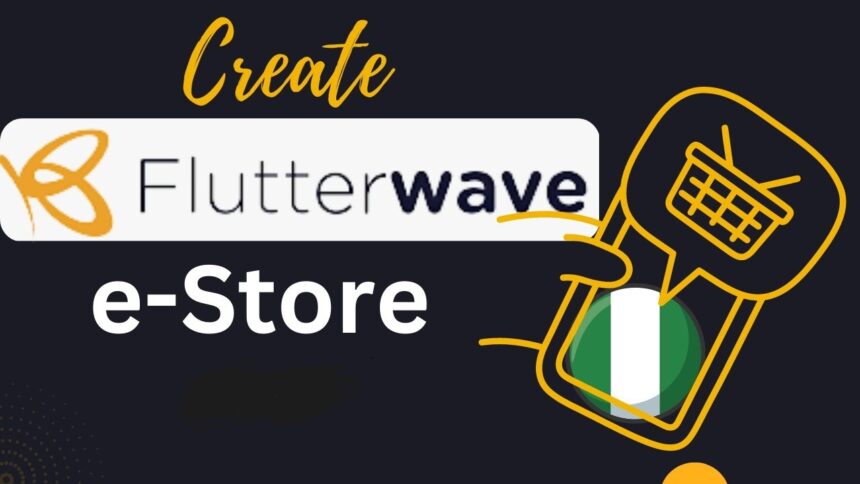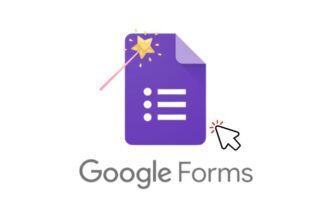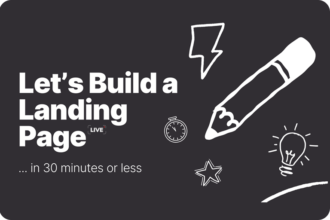No-Code E-commerce: Setting Up a Store with Flutterwave in Nigeria
In the heart of Lagos, Chika Nwosu, a young entrepreneur with a knack for crafting handmade Ankara bags, dreamed of sharing her creations with the world. But with no coding skills and a tight budget, building an online store seemed out of reach. That is, until she discovered Flutterwave Store, a no-code e-commerce platform that transformed her small business into a thriving online venture. This is Chika’s story—and a step-by-step guide for Nigerian entrepreneurs like her to set up a store with Flutterwave, no tech expertise required.
Why Flutterwave Store? The No-Code Advantage
Launched in 2020 by Nigerian fintech giant Flutterwave, the Flutterwave Store is a game-changer for small businesses across Africa. Designed to bring offline businesses online with minimal hassle, it allows anyone to create an e-commerce store without coding or website-building skills. For Nigerians, where over 76 million people shop online, Flutterwave Store offers a free, user-friendly platform to tap into this growing market. Key benefits include:
- Zero Setup Cost: Create a store for free, with Flutterwave charging only a small transaction fee (1.4% for local payments, capped at ₦2,000).
- Global Payments: Accept payments via cards, mobile money, bank transfers, and more, in multiple currencies.
- Integrated Logistics: Partner with delivery services like Sendbox for seamless product shipping in Nigeria.
- No Coding Needed: Set up a store in minutes using a simple dashboard, perfect for non-tech-savvy entrepreneurs.
Chika, like many Nigerian SMEs, saw Flutterwave Store as her ticket to reaching customers beyond her local market in Surulere.
Chika’s Journey: From Local Market to Global Marketplace
Chika started her business, Chika’s Ankara Creations, at Alaba Market, selling vibrant bags to local customers. But with Nigeria’s e-commerce boom—accelerated by the COVID-19 pandemic—she wanted to go online. In early 2024, a friend recommended Flutterwave Store, promising she could set up shop without hiring a developer. Skeptical but hopeful, Chika took the plunge.
Step 1: Creating a Flutterwave Account
Chika began by visiting flutterwave.com and signing up for a free account. She filled in her details—name, email, phone number—and verified her email via a confirmation link. Since her business was registered, she selected the “Business” account type and uploaded her ID and bank details for verification, a process that took just 24 hours. For freelancers, only an ID is needed, making it accessible for solo entrepreneurs.
Step 2: Setting Up the Store
Once logged into her Flutterwave dashboard, Chika clicked “Store” on the left-hand menu. She customized her store with:
- Store Name: “Chika’s Ankara Creations.”
- Description: “Handcrafted Ankara bags for every style, made with love in Lagos.”
- URL: A unique link (e.g., flutterwave.com/store/chikasankara).
- Logo: A vibrant image of her bestselling bag, uploaded via Canva.
She selected “Fashion” as her store category and clicked “Complete Setup.” In under 10 minutes, her store was live, listed on Flutterwave Market, a platform where millions shop daily.
Step 3: Adding Products
Chika navigated to the “Products” tab and clicked “Add Product.” For each bag, she:
- Entered the product name (e.g., “Ankara Tote Bag”).
- Wrote a description highlighting its unique design and durability.
- Set the price (e.g., ₦15,000) and stock quantity.
- Uploaded high-quality photos taken with her smartphone, showcasing the bags’ colors.
She added categories like “Totes” and “Clutches” and saved up to five images per product. Repeating this for her 10 designs took an hour, but her store now looked professional and inviting.
Step 4: Enabling Payments and Shipping
Flutterwave’s strength lies in its seamless payment integration. Chika’s customers could pay via Paystack, bank cards, mobile money, USSD, or even PayPal, catering to both local and diaspora buyers. She enabled “Flutterwave Shipping Partner” to integrate with Sendbox, ensuring deliveries across Lagos and beyond. Alternatively, she could have chosen to handle shipping herself, setting custom fees for regions like Abuja or Port Harcourt.
Step 5: Sharing and Selling
Chika copied her store’s unique URL and shared it on WhatsApp groups, Instagram (@ChikasAnkaraCreations), and Twitter, using hashtags like #NaijaFashion and #ShopLocal. She also created a Black Friday deal using the discount code “FLWDEALS,” which featured her products on Flutterwave Market’s Deals section. Her first sale came within hours—a ₦20,000 bag sold to a customer in Ibadan. By month’s end, she earned ₦150,000, with Flutterwave’s 1.4% fee barely denting her profits.
Related Articles:
- 10 Best No Code Website Builders for Your Business in Nigeria (2025 Guide)
- Top 5 No-Code Tools for Nigerian Startups
- Simplify Your Workflow: Build a Powerful Chatbot Without Writing Code
Challenges and Solutions
Chika faced hurdles along the way:
- Limited Customization: Flutterwave Store’s interface isn’t as flexible as a custom website, lacking advanced design options. Chika countered this by using Canva to create eye-catching product images that matched her brand’s vibe.
- Logistics Costs: Sendbox fees were high for rural deliveries. Chika offered “self-pickup” in Lagos to reduce costs for nearby customers.
- Trust Issues: Some customers hesitated to buy online. Chika added customer reviews to her product pages and shared testimonials on Instagram to build trust.
Scaling Up: Chika’s Growth
By mid-2025, Chika’s store was generating ₦500,000 monthly, driven by:
- Social Media Marketing: She posted Reels showcasing her bags, optimized for voice search queries like “buy Ankara bags in Nigeria.”
- Email Campaigns: Using Mailchimp, she sent newsletters with product links, boosting repeat purchases.
- Global Reach: Her store attracted buyers from the UK and US, thanks to Flutterwave’s multi-currency support.
Chika also used Flutterwave’s mobile app to track orders and manage payments on the go, turning her smartphone into a mobile POS. She’s now planning to add custom scarves to her store and host a virtual “Ankara Styling Workshop” to engage her audience further.
Tips for Nigerian Entrepreneurs
- Optimize Product Photos: Use good lighting and simple backgrounds to make products pop. Free tools like Canva help.
- Leverage Social Media: Share your store link on WhatsApp, Instagram, and Twitter, where Nigerians are active.
- Test Payments: Use Flutterwave’s test mode to ensure smooth transactions before going live.
- Focus on Trust: Highlight reviews and use secure payment options like Flutterwave’s to reassure customers.
- Monitor Analytics: Use Flutterwave’s dashboard to track sales and popular products, refining your offerings.
Limitations to Consider
- No Digital Products: Flutterwave Store doesn’t support e-books or tickets, limiting some business types.
- Transaction Fees: The 1.4% fee (capped at ₦2,000) adds up for high-volume sales. Compare with self-hosted options if scaling significantly.
- Basic Interface: Merchants wanting advanced customization may need a custom site later.
Final Thoughts
Flutterwave Store empowered Chika to turn her Ankara bags into a global brand without writing a single line of code. For Nigerian entrepreneurs, this no-code platform offers a fast, free, and flexible way to join the e-commerce boom, reaching customers from Lagos to London. Whether you’re selling fashion, food, or crafts, Flutterwave Store simplifies the process with integrated payments and logistics. Start your no-code e-commerce journey with Flutterwave today, and turn your business dreams into reality!
Image source: Youtube.com






